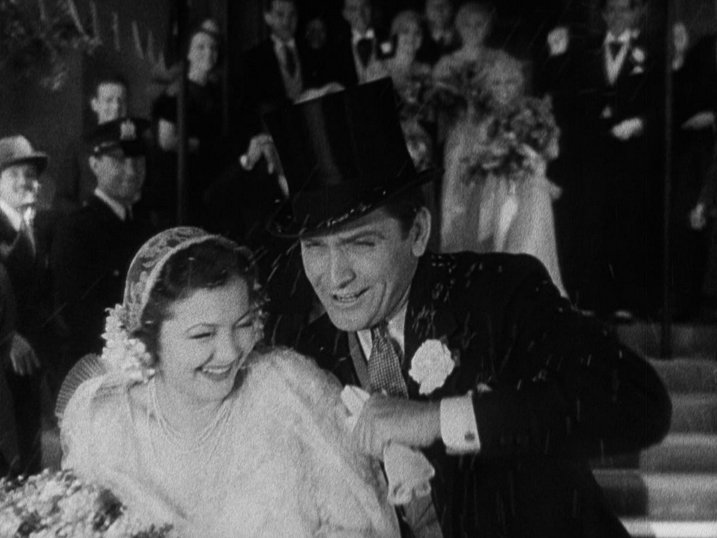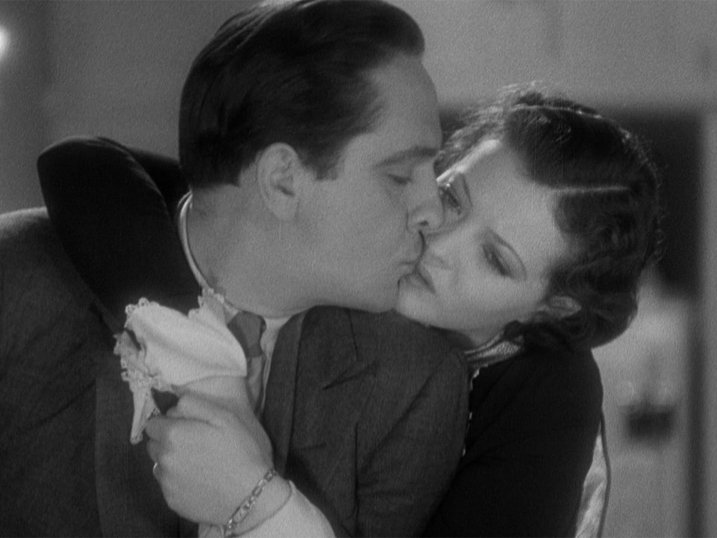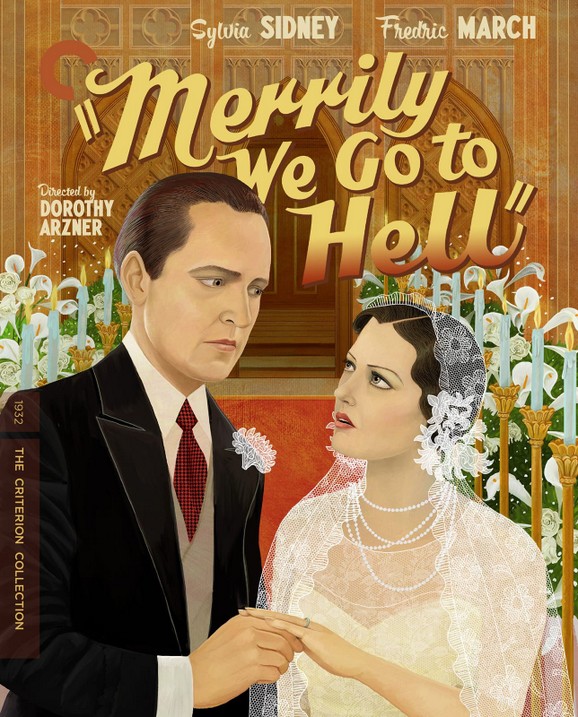Merrily We Go To Hell – The Criterion Collection (Blu-ray Review)
 When considering the racy nature of Merrily We Go To Hell, it’s interesting to think about how long certain struggles have been going on within a media-driven culture. While one can look to the 1960s and 70s to get more of an idea of what women went after during the counter culture days, it’s not like Susan B. Anthony didn’t accomplish plenty in the 1910s and 20s. Merrily We Go To Hell is similarly tackling early-feminist ideas on the modern marriage. The film arrived in 1932, long before growing reactions became more common coming out of the conservative American 50s. The Criterion Collection has now delivered the Dorothy Arzner-directed film on a new Blu-ray, with some extras providing further insight into what the movie was commenting on.
When considering the racy nature of Merrily We Go To Hell, it’s interesting to think about how long certain struggles have been going on within a media-driven culture. While one can look to the 1960s and 70s to get more of an idea of what women went after during the counter culture days, it’s not like Susan B. Anthony didn’t accomplish plenty in the 1910s and 20s. Merrily We Go To Hell is similarly tackling early-feminist ideas on the modern marriage. The film arrived in 1932, long before growing reactions became more common coming out of the conservative American 50s. The Criterion Collection has now delivered the Dorothy Arzner-directed film on a new Blu-ray, with some extras providing further insight into what the movie was commenting on.
–
Film: 




Mainly set in Chicago, Fredric March plays Jerry Corbett, a playwright (and occasional drunk) who meets heiress Joan Prentice (Sylvia Sidney) at a party. The two quickly fall for each other and get married, much to the chagrin of Joan’s father (George Irving). Despite difficulties getting some of his work off the ground, Jerry manages to sell a play, leading the couple to New York. When the star of his play turns out to be Clair Hampstead (Adrianne Allen), a former girlfriend of Jerry’s, it sets off a decision for the married couple to explore the idea of an open marriage.
At times I only know so much about these films going in, as the movies chosen for Criterion (particularly the older ones) surely landed there for a reason, so going in blind to some degree feels like a great benefit. As a result, while I was expecting something closer to a screwball comedy, as it turns out, Merrily We Go To Hell is as much a drama as it is a farce. There is fun to be had, sure, but especially when looking at the story and the connections these characters share, it’s hard to not get caught up in the emotions of a given scene.
It’s wild to think Azner could not only be one of the very few prominent female Hollywood directors during this time but one who could get away with a film that manages to push limits, even in the pre-Code era. The title alone surely caught many off guard, but the thought of March playing an alcoholic who is engaging in an affair with a wife who tries to match him (with a young Cary Grant for one scene, no less), is pretty wild to think about. That’s not to say this era of filmmaking was nothing but stuffy dramas and broad comedies (with the occasional Universal monster film), but watching a film thread with a very particular needle is not without a deserved level of praise.
It doesn’t hurt to see performances so fine-tuned to what’s taking place. March plays a good drunk, but seeing him balance a level of happiness with his understanding of the effect his actions have is quite successful. The same goes for Sidney. She does a lot with a character who could have been reduced to so much less. Even in areas where the film shows its age and how a resolution is earned, you still end up feeling for these two who are combatting in such a sensationalist feature.
Clearly, audiences weren’t too phased by the nature of this film, which provides as much bite as a social commentary as it does a comedy-drama, as it was reasonably successful for its time. Whether or not it did much for the discourse of the period, I cannot say. As it stands, Merrily We Go To Hell is still a very watchable film by today’s standards. It’s sharp enough, without losing sight of making both parties sympathetic, even as you watch them make choices going against certain established principles.
Video: 




Encoding: MPEG -4 AVC
Resolution: 1080p
Aspect Ratio: 1.37:1
Details: This new digital transfer was created in 4K resolution on a Lasergraphics Director film scanner from a 35mm composite duplicate negative at Roundabout Entertainment in Burbank, CA.
Clarity/Detail: When you have Criterion promoting how they were able to remove thousands of instances of dirt, scratches, and more from a nearly 90-year-old movie, it’s hard to argue with the results. Merrily We Go To Hell looks pretty fantastic. The detail comes through quite clear in busy scenes involving large locations filled with people and various forms of production value.
Depth: An excellent level of dimensionality is on display, particularly noticeable early on when the couple first meet on a balcony.
Black Levels: Black levels are quite stable, deep, rich, and feature no sign of crushing.
Color Reproduction: N/A
Flesh Tones: The detail level seen in the characters is impressive.
Noise/Artifacts: The film is spotless.
Audio: 




Audio Format(s): English LPCM Mono
Subtitles: English
Details: The original monaural soundtrack was remastered from a 35mm optical track using Avid’s Pro Tools and iZotope RX.
Dynamics: This Blu-ray’s mono track has been fully restored and does a solid job finding ways to deliver on the various elements brought to the film. Dialogue is, of course, key to all of the movie, though some moments of echo pop up.
Low-Frequency Extension: N/A
Surround Sound Presentation: N/A
Dialogue Reproduction: Everyone is heard loud and clear.
Extras: 




What this disc may lack in quantity, it makes up for in quality, as the two features provided deliver a lot of great info about the film and its director.
Features Include:
Cari Beauchamp (HD, 26:33) – A video essay from film historian Cari Beauchamp, who goes over the nature of films from this pre-code era, how things had changed, the content of this film, and other aspects of its production, and the reaction.
Dorothy Arzner: Long for Women (SD, 46:54) – A 1980 documentary featuring filmmaker Katja Raganelli and her husband and cinematographer Konrad Wickler, who traveled from Germany to California for this documentary about director Dorothy Arzner. It’s an interesting watch as we learn about the director and how this couple connects to her.
Trailer (HD, 1:27)
PLUS – An essay by film scholar Judith Mayne.
Summary: 




As mentioned, I had no idea what to expect from Merrily We Go To Hell, and the result was a far more complex and interesting feature than expected. It’s a solid comedy but has real dramatic depth and more going on, given the era it arrived in. This new Blu-ray release does proper justice, as expected from Criterion, with a quality video and audio transfer doing well to support such an old feature and a couple of solid extras to round out the package. Those curious about the Golden Age of cinema have an exciting film to see here.


































